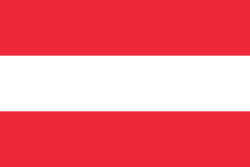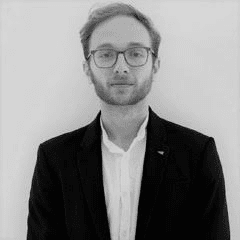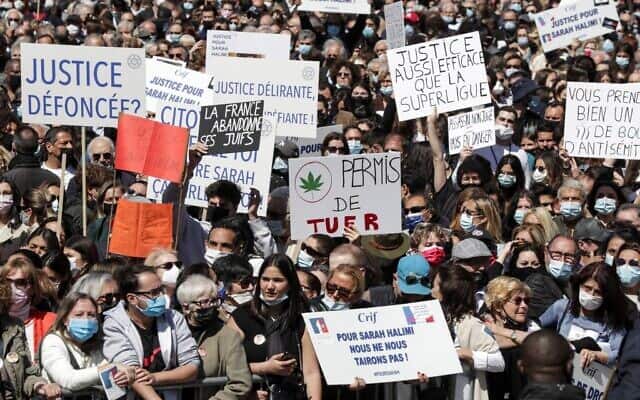It is my great pleasure to wish you, your families and friends and Jewish communities all over the world a joyful and blessed Erev Rosh Hashanah and a happy new year 5779, full of health, prosperity and success.
Rosh Hashanah is always a good time to look back at the year before, to review our deeds, an opportunity to reflect but also to revive our engagement for causes we believe in and adjust our path accordingly.
It was a challenging year for Europe and its Jewish communities as our societies were put to the test, again. We witnessed demonstrations of Jewish communities in several countries standing up against antisemitism and claiming their rights as citizens. Europe is built upon the richness of our diversity and the unity of our fundamental values. That is why I have great confidence in our collective future.
The European Commission’s relationship with Jewish communities, organisations and representatives has never been closer. This alliance makes us stronger in the battle against hatred, extremism and antisemitism. I was very honoured to receive the Lord Jakobovits Prize of European Jewry this year. I see it as a sign of trust in the bond that exists between the European Union and the Jewish communities.
With shock and sadness I recall the horrific murder of Mireille Knoll who survived the roundup at Vel d’Hiv in 1942, but not antisemitism in Europe in 2018. The European Commission was very clear that there can be no justification and we stand in full solidarity with the European Jewish communities in condemning these vile attacks in the strongest possible way.
Jews should never have to wonder whether it is safe to display their identity in their own neighbourhood, city or country. Europe must remain a place where Jewish life can flourish and Jews can freely practice their faith without fear or restrictions. It doesn’t matter where the hatred comes from, whether it is right-wing, le -wing, Islamist extremists or whether it comes masked as antizionism, we all have the obligation to stand up and speak out.
Against resurging threats, the rebirth of Jewish life in many parts of Europe is a precious gi . It filled me with pride to take part in the inauguration of the new rabbi in my own home region last year and to see the continuation of thousands of years of Jewish communities in Europe. Every new synagogue, community centre and school is a step to strengthen Jewish life, but also a step to strengthen Europe and to strengthen our societies.
We will ensure that Jewish voices continue to be heard in Europe and let me thank all of you who participated in the broadest consultation ever on challenges to Jewish life in Europe, conducted by the EU’s Fundamental Rights Agency. The results will be presented this December and will guide our policy response with the ultimate aim of ensuring the rights of Jews in Europe.
This year is also special as we celebrate two crucial moments in history: the 70th anniversary of the Universal Declaration of Human Rights, enshrining the lessons for humanity from the Shoah, and the 70th anniversary of the establishment of the State of Israel, materialising the Jewish people’s dream of a Jewish homeland.
The European Union was built on the values of respect for human dignity, human rights, freedom, democracy, equality and the rule of law. We have the obligation to protect and strengthen the richness of Jewish culture and diversity and its contribution to our Europe.
Rosh Hashanah is always a good time to look back at the year before, to review our deeds, an opportunity to reflect but also to revive our engagement for causes we believe in and adjust our path accordingly.
It was a challenging year for Europe and its Jewish communities as our societies were put to the test, again. We witnessed demonstrations of Jewish communities in several countries standing up against antisemitism and claiming their rights as citizens. Europe is built upon the richness of our diversity and the unity of our fundamental values. That is why I have great confidence in our collective future.
The European Commission’s relationship with Jewish communities, organisations and representatives has never been closer. This alliance makes us stronger in the battle against hatred, extremism and antisemitism. I was very honoured to receive the Lord Jakobovits Prize of European Jewry this year. I see it as a sign of trust in the bond that exists between the European Union and the Jewish communities.
With shock and sadness I recall the horrific murder of Mireille Knoll who survived the roundup at Vel d’Hiv in 1942, but not antisemitism in Europe in 2018. The European Commission was very clear that there can be no justification and we stand in full solidarity with the European Jewish communities in condemning these vile attacks in the strongest possible way.
Jews should never have to wonder whether it is safe to display their identity in their own neighbourhood, city or country. Europe must remain a place where Jewish life can flourish and Jews can freely practice their faith without fear or restrictions. It doesn’t matter where the hatred comes from, whether it is right-wing, le -wing, Islamist extremists or whether it comes masked as antizionism, we all have the obligation to stand up and speak out.
Against resurging threats, the rebirth of Jewish life in many parts of Europe is a precious gi . It filled me with pride to take part in the inauguration of the new rabbi in my own home region last year and to see the continuation of thousands of years of Jewish communities in Europe. Every new synagogue, community centre and school is a step to strengthen Jewish life, but also a step to strengthen Europe and to strengthen our societies.
We will ensure that Jewish voices continue to be heard in Europe and let me thank all of you who participated in the broadest consultation ever on challenges to Jewish life in Europe, conducted by the EU’s Fundamental Rights Agency. The results will be presented this December and will guide our policy response with the ultimate aim of ensuring the rights of Jews in Europe.
This year is also special as we celebrate two crucial moments in history: the 70th anniversary of the Universal Declaration of Human Rights, enshrining the lessons for humanity from the Shoah, and the 70th anniversary of the establishment of the State of Israel, materialising the Jewish people’s dream of a Jewish homeland.
The European Union was built on the values of respect for human dignity, human rights, freedom, democracy, equality and the rule of law. We have the obligation to protect and strengthen the richness of Jewish culture and diversity and its contribution to our Europe.
Shana tova ve’metuqa!
Rosh hashanah_message_2018_EN
Rosh hashanah_message_2018_HE
Rosh_hashanah_message_2018_FR
Rosh hashanah_message_2018_EN
Rosh hashanah_message_2018_HE
Rosh_hashanah_message_2018_FR

















